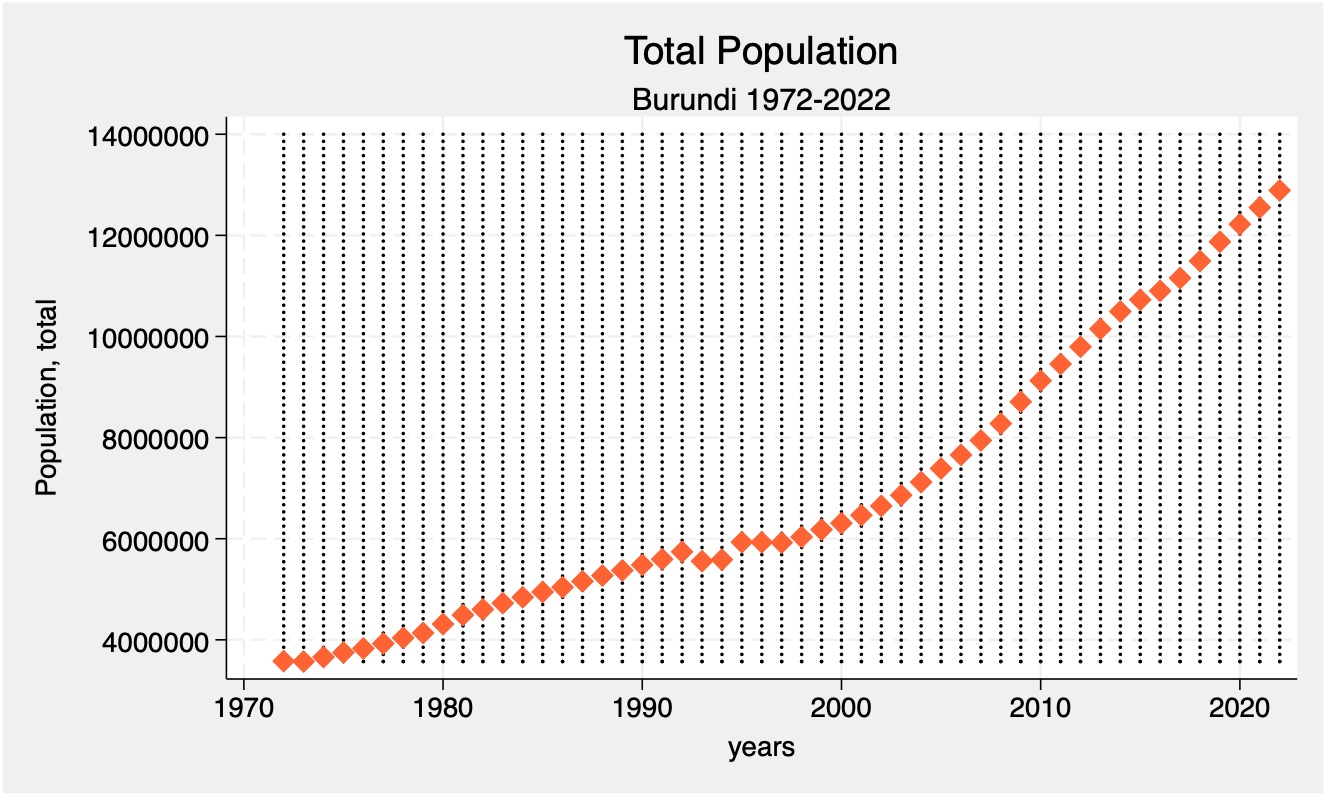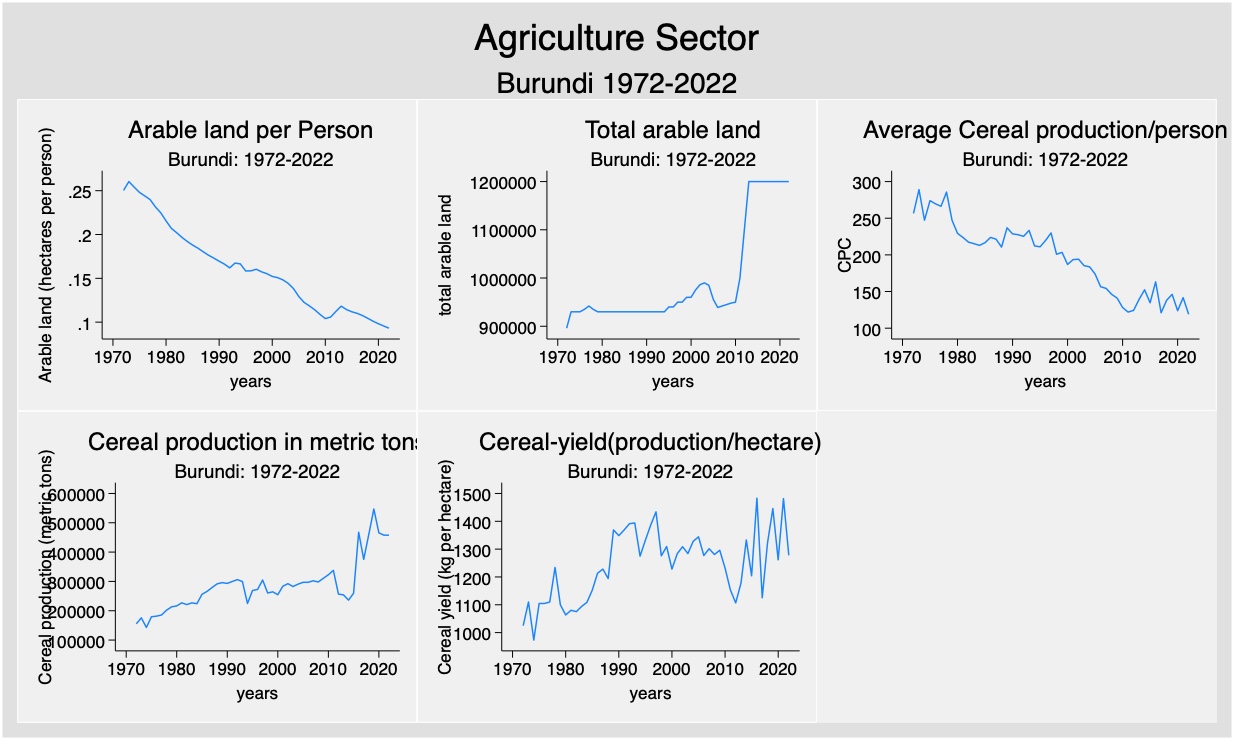The population of Burundi has experienced rapid growth, with a current rate of 2.7% as of 2022.
Since 2001, the population has doubled, and if this trend continues unchecked, it is projected
to double again by 2050. However, despite this demographic surge, incomes have been declining,
leading to a decrease in purchasing power amidst rising costs of goods and services. Burundi's
heavy reliance on subsistence agriculture, supporting around 90% of its population, exacerbates the
situation. Unfortunately, agricultural productivity has not kept pace with population growth,
resulting in food insecurity and contributing to economic stagnation. To delve into the impact of
demographic growth on economic development, this study utilizes secondary data from the World Bank
time series and the DHS 2016/2017.
Using the Vector Error Correction Model and Linear OLS regression
for time series analysis, and both linear and nonlinear probability models for fertility preference analysis,
the study uncovers significant negative effects of population growth on cereal production per capita
and real GDP per capita in both short and long term. Using DHS data, we find that people express a preference
for fewer children than they currently have, with the ideal number being between 3 and 4.
The study does not attribute Burundi's economic challenges solely to population growth.
We argue that a multifaceted approach, which acknowledges the significance of classical and
neoclassical growth theories, comprising population control—targeting a maximum of 3 children per woman—agricultural reform,
and fostering a free and competitive market, could substantially bolster Burundi's socio- economic development.
See More

this is the paragraph1

this is the second paragraph about this picture
